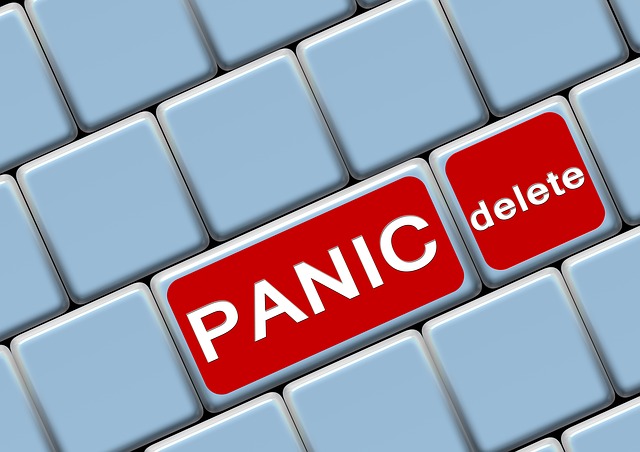7 Ways to Stop a Panic Attack Instantly
By Donya Molock
December 10, 2015 • Fact checked by Dumb Little Man

I remember the first time I suffered from a panic attack. I was 21 years old, had just graduated from college, and lived in first real apartment. I was a country girl living in the big city.
On the outside, my life looked like the textbook definition of perfection. In reality, I was lonely, couldn’t pay my rent, and was drowning in student loan debt with my meager new grad salary. I felt so much pressure to please my family and look like I had my life together.
One day, before heading to work I began to have trouble breathing and my heart started racing. The room was spinning and I felt like I was dying. I called in sick to work.
At the time, I didn’t have a name for what I was experiencing. Now, I know it was panic. I’ve since learned strategies that have helped me control the panic attacks. Here are seven essential techniques for eliminating panic.
You Are in Control
It’s a false belief that we are not in control of our lives. Now, we may not be able to control everything that goes on in the world. We do have control over how we react to situations.
Don’t like your job? You can change it. Even in the worse circumstances, we have control. If you have cancer, you still have control over how you deal with your diagnosis.
Test Your Reality
That panic attack is your mind playing tricks on you. When you engage in black or white thinking ask yourself, “Is this belief really accurate? “Do I have solid evidence to support this belief?” We tend to catastrophize events and see things in life worse than they really are.
Play “What’s the Worst That Can Happen”
Think about the absolute worst case scenario of your situation. Play it over and over again in your mind. Eventually, you’ll come to see that even if worst happens, things usually work out in the end. The negative thought will have no power over you and panic will disappear.
Panic Is Temporary
Your panic attack will not last forever. Physiologically you cannot stay in a fearful state for long. Eventually your body will return to a normal state. Panic attacks come and go.
To alleviate panic, it helps to use distraction and focus on something else. Practice controlled breathing techniques. Slow down your breathing and focus on breathing in and out.
Visualize being in a calm place away from worry and fear. If you’ve had a panic attack before, you already have experience to know that the attack will not last.
Quiet Your Mind
Do you have self-limiting negative thoughts? Learn to slow down your mind.
Use guided meditations or simply close your eyes and focus on calm thoughts. At first, it’s difficult to learn to quiet the mind through meditation. Over time, it does get easier.
Practice saying positive affirmations like, “I am powerful. I am strong.” Do whatever it takes to challenge negative beliefs.
Use Grounding Techniques
During panic attacks, our fearful brains go from 0 to 60 with racing thoughts. You need strategies to help you stop thinking about the past or the future and focus on the here and now.
Grounding techniques bring your attention to the present and snap you out of your fear based loop of negative thoughts. Get in touch with nature. Literally put your bare feet on the ground and feel soil on your feet.
Physical movements like running in place, smelling soothing essential oils, and rubbing ice cubes on your skin all connect you to your immediate senses. These grounding techniques will get you out of your head and into your body.
Know Your Triggers
Preventing a panic attack begins with knowing what raises your anxiety levels. Is it pressure from work, school, home life, or a specific person? Ask yourself what is it about a particular situation that creates anxiety and panic? Self-awareness is key.
For some people, certain foods like caffeine can rev up the heart rate and central nervous system and induce more panic.
Limit or totally avoid sugar and alcohol. While they may not cause panic attacks in and of themselves, they help set the stage for your body to go into overdrive.
Donya Molock
Donya Molock, BSN, RN is a freelance medical writer, journalist, and psychiatric registered nurse with over a decade of experience in mental health. She specializes in helping women find their inner

